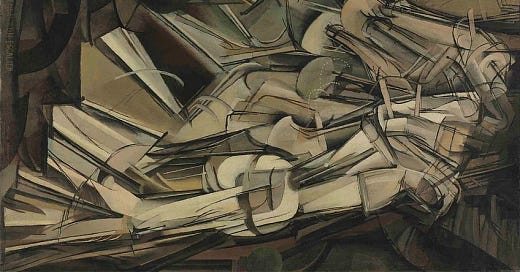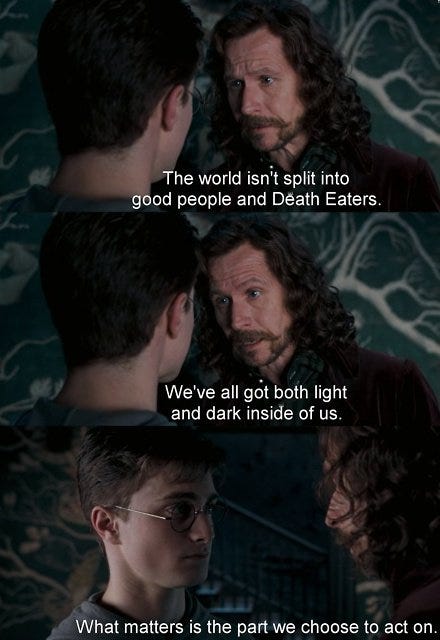They say that sunlight is the best disinfectant. Much of human behaviour has already been cast into the sunlight—aired out, heavily examined—the not-so-sensitive stuff is squeaky clean. But it’s rarely butterflies and rainbows at the root of our behaviour and decisions, so what about the deeper stuff?
My interest has always been piqued by the edgy, the mysterious, the complex. Basically: by anything that requires untangling. This mostly manifests itself in my desire to understand what drives human behaviour, in all its ominous complexity:
Desire, seduction, betrayal, power, money, status, envy.
These forces excite me. Which: odd, right? At least, I find it odd. These things are dark, strange, peculiar. I don’t consider myself a dark person. The opposite, if anything: I’m an optimist with an occasionally irritating amount of positive energy. So, why am I so enthralled by this subject matter?
It can most easily be explained by the allure of taboo. The more taboo a topic is, the deeper the desire is to learn about it. Which adds up, because one of desire’s cornerstone rules is: the greater the obstacle, the greater the attraction. The scarcity of information available intensifies my attraction to these topics.
Another reason I like dark things is because only the deeply curious and courageous approach them—who, coincidentally, are also my favourite types of people. In desire-speak: these are my models (the people I want to be more like).
Unpacking taboo also sparks new and interesting conversations, which I adore. We’ve exhausted the stuff we can discuss without wincing in discomfort. But love, sex, seduction, ambition, desire, and the giant cocktail of motivation these conjure up to shape our choices? They’re like the deadly sins of human psychology. Few people want to go near them, so they rarely get pulled into commonplace talk about human behaviour. It’s almost like dark magic in Harry Potter—thorny, dangerous, not something many want to touch. But as every young wizard knows, to protect yourself from dark magic, you need to understand it. That’s why they taught it at Hogwarts, remember? The students learned how to defend themselves against dark magic to ensure their own safety. This is largely why I’m drawn to these peculiar forces: despite their seemingly ‘impure’ nature, they are fundamental to who we are and thus a necessary piece of understanding the whole.
I like the comparison to dark magic because everyone knows that to be a powerful wizard, you must be experienced in both forces—light and darkness. This is critical to defend yourself, as well as to understand the magnitude and potential of the bad. We can only fight what we understand, which is why no matter how badly we don’t want to look at evil and darkness in the world, if we want to rectify it, we need to stare it in the eyes: examine its roots, understand what it’s capable of. Then apply our own morality in correcting it.
This duality between light and darkness manifests itself in Harry Potter’s individual journey in Order of the Phoenix, where Harry wrestles with the darkness inside him for the first time in the series. Until then, he is perceived—by himself and others—as purely a vehicle for good. A vehicle for loyalty, courage, righteousness, forgiveness and kindness. But in this book, he begins to think he might end up just like Voldemort: dark, sad, alone, and angry. He notices the darker parts of himself becoming stronger, gaining more control over his psyche. He feels angrier, more irritable, less joyful.
As Harry struggles with the idea that he might be evil, Sirius says to him plainly: “The world isn’t split into good people and death eaters. We all have light and darkness inside us. What matters is the part we choose to act on.”
There’s a grandfather-wisdom-tale that tells a similar story: A young boy asks a sage how we know if we’re good or evil. The sage explains that we all have a dog (the good) and a wolf (the bad) inside us. What matters is which one we choose to feed.
We all act on both impulses at times. Generosity or greed. Kindness or cruelty. Humility or hubris. There’s this line my professor of math/philosophy used to say: we can’t be sure if there’s a God, but we can be sure there is a Self, and trust me: you have to answer to it.
To make the ‘right’ choice, we need to understand where our impulses come from—the source of the light/darkness fighting to get out. And pretending the “wolf” impulses inside us don’t exist only makes us more susceptible to their grip on us.
Continuing with the dark magic analogy, Hogwarts chose not to teach about horcruxes. So, when Tom Riddle discovered them, he had to sneak behind closed doors (Horace Slughorn’s office hours) to get the information he wanted. The result of this was that no one knew what he was up to, nor could they have predicted the magnitude of what he created (7 horcruxes!). By omitting horcruxes from the students’ lexicon in fear it might manifest itself maliciously, the problem became more sinister than they could have predicted, because no one understood the source or scale of Voldemort’s magic. That is the danger of concealing and avoiding darkness: that which you oppress comes back roaring with a dominance you cannot predict.
It’s similarly important to understand the dark forces behind human behaviour. Understand manipulation, so you can defend yourself against it. Understand seduction, so you can avoid being an ignorant victim. Understand your desires, so you can decide which ones to trust.

Most things can manifest themselves immorally, but equally, almost everything can be used as an engine for morality, progress, growth, constructiveness. Comedians are a great example of those harnessing a dark take on reality to spark something inherently good: laughter. It is seeing things clearly that lets us make sound choices. Without exploring darkness, we miss half the story.
As for defending ourselves against darkness: we know that destructiveness is easier than constructiveness—it’s the default. It’s easier to destroy something than it is to build something. For example, on twitter, anyone or anything that does ‘really well’ will have a small trail of people behind them trying to destroy what they are building. The builder can pretend this isn’t happening, “stay in their lane”, focus on the light, but the most powerful people are those that look at the hate, the dunk, whatever it is, and come back at it with a strength that causes the darkness to contract, letting what they built persist, unaffected.
The bigger a force of “good” becomes, the better a target it is for evil. It’s most fun to tease people when there’s a sufficiently big reward for doing so. The bigger you get, the more vulnerable you become to darker impulses from yourself as well as attacks from others (think: talented celebrities that were ultimately taken advantage of by a manipulative significant other or fell into the world of drugs). By avoiding the darker half of human psychology, we become more susceptible to it.
The natural contention here is: by exploring darker concepts, might you be giving information to the wrong people? Of course, but by trying to curate information around the pursuit of good, I hope to mostly be equipping good people with tools to fight bad forces. There are probably much more potent sources exploring these topics that anyone with sincerely malicious intentions could find if they wanted to. Like: Voldemort was going to scrap his way through dark magic books regardless of Hogwarts’ introductory course, but without the foundational training the other wizards needed to defend themselves, Voldemort’s evil might have won. In short: my goal is to empower the Harry, Hermione and Rons of the world, and maybe even convert some Voldemorts along the way.
So as I continue to explore more taboo topics, I wanted to first communicate my intentions: to help people understand, manage and harness all the shades of their psychology—the light, the dark and everything in between.
There’s that classic Rocky quote I love:
“Let me tell you something you already know. The world ain't all sunshine and rainbows. It's a very mean and nasty place and I don't care how tough you are it will beat you to your knees and keep you there permanently if you let it. You, me, or nobody is gonna hit as hard as life. But it ain't about how hard you hit. It's about how hard you can get hit and keep moving forward. How much you can take and keep moving forward. That's how winning is done! Now if you know what you're worth then go out and get what you're worth. But ya gotta be willing to take the hits, and not pointing fingers saying you ain't where you wanna be because of him, or her, or anybody! Cowards do that and that ain't you! You're better than that.”
This speech is great because it says: the world is brutal, and the only way to win is to look at it in all of its brutality, and not take the shit it’s trying to give you. And to me this means: understand the dark stuff, so you can jump over it, around it, fight back against it, and win regardless. If you stick your nose up and naively act like ignoring something erases its existence, you become more vulnerable to it.
The best (and perhaps only) way to understand how to get up when the world feels dark, is to see that there is a good path and a bad path—and to understand both so you can make the best choice. More knowledge, better understanding is power. We need to explore it all. The good, the bad, and the ugly. Put it in the sunlight. Strip it down. Disinfect it. Lay it under a microscope and examine it. Because life is all of it. Not just the stuff we feel comfortable looking at. It’s a big cloudy cocktail of good and bad. It all comes back to the shadow, to integrating our dark parts:
“If you get rid of Shadow qualities you don’t like by denying them, you become more and more unaware of what you are…. you declare yourself more and more non-existent, and your devils will grow fatter and fatter.”—Carl Jung
So I’m going to keep excavating relentlessly, because the stuff we are least willing to look at—the stuff that’s most unsettling, taboo, hard to find—tends to also be the most instructive. Exploring what is underneath, what is controlling us without our consent, is a necessary part of taming the whole.
We aren’t any less driven by dark forces than we are light ones, the only difference is how much we know about them. So, the only path I see to complete understanding is pulling back the blinds to expose the darkness, in all its gruesome glory.
PS - say hi on Twitter if this resonated! And if you enjoyed this, you might be interested in a related piece I wrote: you vs. you.







I've always found it interesting how so many people feel darkness is something to either completely subdue or overcome. Light and dark, good and evil, they're two sides of the same coin. As relative concepts, they can't exist without each other. So if we somehow managed to eradicate "bad" from the world, we would necessarily be eliminating "good" as well.
I enjoyed reading this! An interest in understanding the darkness doesn't always mean one is evil. But it must be the fear of our tendency to lean closer to it (than toward the light) that makes it feel a bit dangerous.